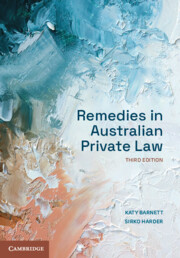Commons are tangible and intangible goods (e.g., knowledge, health) that should be accessible to all members of a certain community (e.g., global, supranational, national, local). Private law and the commons in scientific research have traditionally been regarded as two mutually exclusive concepts. While the idea of the commons in scientific research is based on the concepts of open access to information, knowledge, data, and materials, the traditional understanding of private law evokes the opposing notions of ownership, patents, and privatization. However, scientific practice has shown how different models based on private law rules can be used to enhance and protect the commons, while at the same time encouraging innovation. This chapter explores, from a theoretical and practical perspective, how private law (property rights, intellectual property, licenses, and other contracts) can be used to develop models to lay down the legal foundation for the construction and further protection of the commons arising from the use and exchange of health data and human biological materials in scientific research for the improvement of human health.
In particular, this chapter’s general objective is to determine how, and to what extent, the interplay between private law and the commons is instrumental in protecting and promoting individual and collective human rights, with particular emphasis on the right to health and health care and the right to enjoy the benefits of science and scientific progress.
